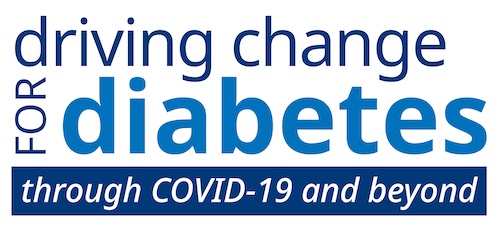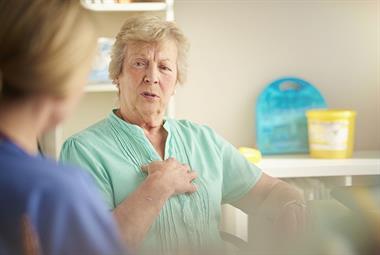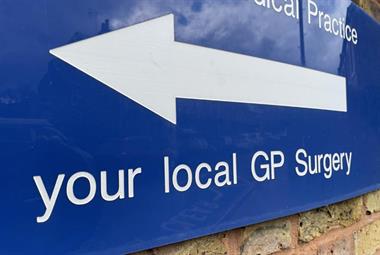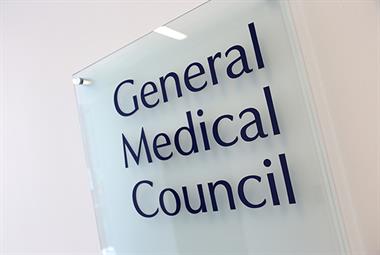This article has been written by Dr Nithya Nanda, and opinions expressed in this article are Dr Nanda’s own, based on his clinical expertise. The article was initiated, funded and reviewed by Novo Nordisk, and Dr Nanda was paid honoraria by Novo Nordisk for authoring this article.
As we all know, the COVID-19 pandemic created new challenges for patient care, especially after the first lockdown. Patients with diabetes have been disproportionately impacted by the pandemic as many of our patients tended to have multiple medical conditions alongside their diabetes, and therefore shielded at home for months. In addition, the impact on the NHS, and in particular diabetes services, has been significant, with the suspension of much routine care.1
This created huge backlogs in type 2 diabetes care planning, as well as medication reviews to achieve necessary three treatment targets - HbA1c, lipid profile and blood pressure.1
Initiating the Slough diabetes BAME+ LCS project
Soon after the first lockdown, we learnt that diabetes2 and obesity were independent risk factors, alongside being from a black, Asian and minority ethnic (BAME) background,3 for worsening COVID-19 complications.
Lack of activity and poor diet during the COVID lockdown period also meant that, some people with type 2 diabetes experienced poor glycaemic control and increase in weight that needed urgent attention.1
This was a dual edged sword. As a clinical lead for Frimley Integrated Care System (ICS), I felt the need to act early and adopt new strategies aimed at engaging patients with type 2 diabetes. We commissioned the ‘Diabetes BAME+ Local Commissioning Service (LCS)’ project that specifically risk stratified patients with type 2 diabetes who had a BMI over 30kg/m2, HbA1c over 85 mmol/mol and with BAME and BAME+ backgrounds.
There was significant incentivisation in primary care for intensive call and recall of patients, to set up interventions at 0, 3, 6 and 9 months with regular checks on HbA1c, lipid profile and blood pressure. This was also an opportunity to promote COVID-19 vaccination messages and COVID-19 secure messages to vulnerable patients identified through the risk stratification process.
Piloting type 2 diabetes telehealth
Early on, in the Slough locality, we started off with remote consultations using a telehealth project which had enough evidence base around improved outcomes with home monitoring.4
We carefully selected patients with type 2 diabetes who were shielding and provided them with Bluetooth- and cloud-enabled devices to record their daily glucose, weight and blood pressure, which we, as clinicians, could monitor via a cloud-based platform.
Additionally, we asked patients to complete weekly questionnaires about their diet, exercise and glucose monitoring. This pilot succeeded in engaging up to 20 patients and helped improved outcomes, so now it has been expanded to include 50 patients.
With regular submission of blood glucose and blood pressure readings by patients, we were able to make appropriate interventions that helped show tangible improvements in all three treatment targets. Not only did this empower our patients, but also showed improved overall satisfaction and outcomes.
With the easing of restrictions and COVID recovery, we are now running a hybrid service via telephone, video-based and face-to-face consultations where appropriate. This has given patients increased flexibility and led to improved engagement.
Expanding our primary care workforce
Even before the COVID-19 pandemic hit, we had identified the need for engaging with poor performing practices with specialist expertise from diabetes specialist nurses. The second lockdown prompted a focussed approach of expanding on these specialist nurses’ clinics in primary care for specific groups of young, inadequately controlled patients that required oral hypoglycaemic agent optimisation.
Again, this project yielded promising results and we are looking at expanding this support across the whole Frimley ICS.
Expanding diet-based programmes
The challenges of inactivity and poor diet during the COVID-19 lockdowns has been well documented.1 To tackle this, we have expanded diet-based programmes to be both virtual and face-to-face.
After running proactive searches to identify patients with obesity who also had uncontrolled type 2 diabetes through our care coordinators within individual primary care networks, we have promoted increased referrals to low calorie diet programmes for type 2 diabetes remission, along with low carbohydrate and digital weight management programmes.
Utilising the ARRS workforce in PCNs
The additional roles reimbursement scheme (ARRS) workforce has also helped expand our workforce. We have independent clinical pharmacists who have training in type 2 diabetes who have provided a significant boost for primary care networks facing challenges such as staff sickness and reduced type 2 diabetes clinics.
By introducing these roles we have now doubled the capacity of type 2 diabetes care planning consultations and have introduced a collaborative medication review for our patients to optimise control by intensively following them in a structured fashion with regular audits every six months.
These are challenging times, but they pave the way for the art of the possible. I would encourage clinical leads and type 2 diabetes champions in practices and PCNs across the country to really embrace the digital technology and integrate working with secondary care and the community. Innovating in this way can help engage and empower patients.
The above are some examples of the initiatives to help clear the backlog and perhaps an attempt to build a sustainable approach as well.
- Dr Nithya Nanda is a GP in Berkshire and CVD and diabetes clinical lead for Frimley Integrated Care System
| Driving Change for Diabetes through COVID-19 and beyond |
|---|
Novo Nordisk has initiated, developed and funded Driving Change for Diabetes through COVID-19 and beyond, a non-promotional online portal designed for healthcare professionals. It contains practical tools and resources to help address the backlog in diabetes care across the UK under the categories of case for change, risk-stratification & audit, workforce development and service development. The portal includes support items from Novo Nordisk plus other third party organisations relevant to the topics of backlog. |
References
- Carr M, Wright A, Leelarathna L et al. Impact of COVID-19 restrictions on diabetes health checks and prescribing for people with type 2 diabetes: a UK-wide cohort study involving 618 161 people in primary care. BMJ Qual Saf 2021; 0: 1–12.
- Pugliese G, Vitale M, Resi V et al. Is diabetes mellitus a risk factor for Coronavirus Disease 19 (COVID-19)? Acta Diabetol. 2020; 57: 1275–1285.
- Malhotra A, Kumar R, Bamrah J. Perspective: Poor metabolic health is a major issue for increased COVID-19 mortality in BAME groups. The Physician 2020: 6(2). https://doi.org/10.38192/1.6.2.4
- Polisena J, Tran K, Cimon B et al. Home telehealth for diabetes management: a systematic review and meta-analysis. Diabetes Obes Metab. 2009; 11(10): 913-930.
Document number: UK22DI00014
Date of preparation: March 2022














.jpg)
